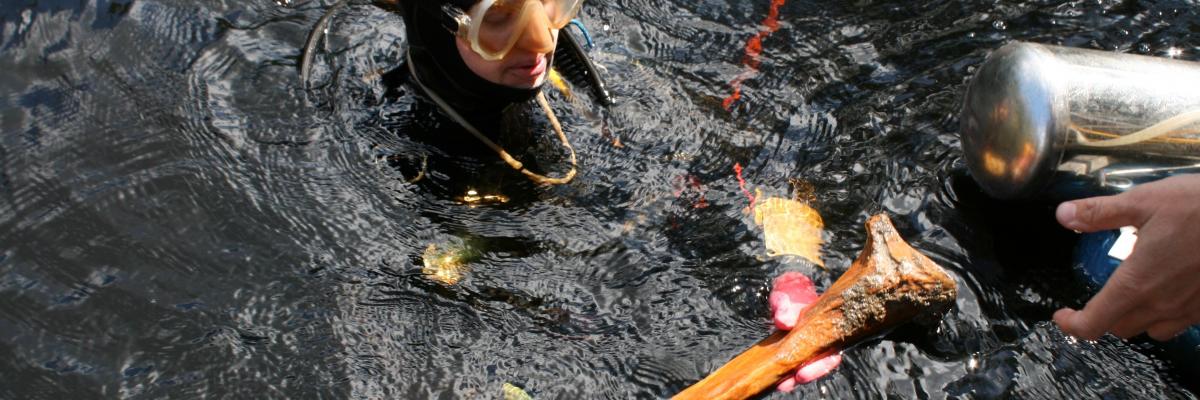The Underwater Archaeology of the First Americans

This message has been approved by Dr. Felicia Coleman, Director of FSUCML, for distribution to students, faculty and staff.
The Underwater Archaeology of the First Americans:
How rising water has both helped and hindered what we can know about the colonization of the continent
Lecture by Dr. Jessi Halligan
Thursday, March 12 at 7 p.m.
FSU Coastal and Marine Laboratory Auditorium
The earliest known archaeological site in Florida is approximately 14,550 years old. It is located on what was the edge of a small pond dozens of miles from the coast or any known rivers, so was likely only one of many sites. Despite almost a century of searching, archaeologists do not know when the first Americans arrived on this continent or who the first coastal peoples in Florida were, largely due to major environmental changes that occurred from 21,000-6,000 years ago. More than half of Florida’s Ice Age landmass has been drowned, and the sites of the first Floridians are likely underwater. The sites do we know about provide important hints about the first Floridians and the world they lived in.
Speaker Bio: Dr. Halligan is an assistant professor in FSU’s Department of Anthropology. Her research uses underwater archaeology and geoarchaeology to investigate both how and when people first colonized the Americas and how the sites of the earliest Americans have or have not survived the major environmental changes at the end of the last Ice Age.
More information: https://marinelab.fsu.edu/outreach/lectures-lunch-bunch/
